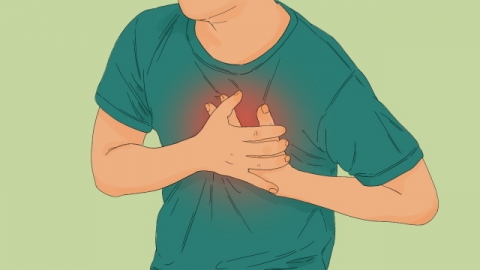What to do about myocardial ischemia
Under normal circumstances, myocardial ischemia may be caused by factors such as aging, unhealthy lifestyle habits, coronary atherosclerosis, coronary artery spasm, and hypertensive heart disease. It is recommended to seek medical attention promptly, identify the underlying cause, and improve the condition under a doctor's guidance through general management, medication, and other treatments. A detailed analysis is as follows:

1. Aging: As people age, blood vessel elasticity gradually decreases, making the coronary arteries prone to narrowing or hardening, which affects blood supply to the myocardium and leads to myocardial ischemia. Regular cardiovascular check-ups are essential in daily life to monitor blood pressure, lipid levels, and other indicators. Engaging in low-intensity exercises such as walking or jogging can enhance cardiopulmonary function, while strenuous physical activity should be avoided.
2. Unhealthy Lifestyle Habits: Long-term smoking, excessive alcohol consumption, high-fat and high-salt diets, and staying up late can damage vascular endothelium, promote lipid deposition, and trigger myocardial ischemia. It is important to quit smoking, limit alcohol intake, adjust dietary patterns, reduce consumption of high-fat and high-cholesterol foods, eat more vegetables, fruits, and whole grains, ensure 7–8 hours of sleep per day, and avoid late nights.
3. Coronary Atherosclerosis: Lipid buildup on the arterial walls forms plaques that narrow the coronary arteries, leading to insufficient blood supply to the myocardium. Symptoms include chest pain and chest tightness. Patients should follow medical advice to take medications such as enteric-coated aspirin tablets, clopidogrel hydrogen sulfate tablets, and atorvastatin calcium tablets to prevent thrombosis and stabilize plaques.
4. Coronary Artery Spasm: Temporary constriction of the coronary arteries causes vessel narrowing and sudden reduction in myocardial blood flow, often associated with emotional stress or cold exposure. Medications such as nitroglycerin tablets, nifedipine sustained-release tablets, and diltiazem tablets may be used as directed by a physician to relieve vasospasm and improve myocardial perfusion.
5. Hypertensive Heart Disease: Prolonged high blood pressure leads to myocardial hypertrophy, resulting in relatively inadequate coronary blood supply and causing myocardial ischemia, accompanied by symptoms such as dizziness and palpitations. Patients should take antihypertensive medications such as amlodipine besylate tablets, valsartan capsules, and metoprolol tartrate tablets as prescribed to control blood pressure and reduce cardiac workload.
In daily life, it is important to maintain emotional stability and avoid excessive tension or anxiety. Carry emergency medications at all times and take them promptly if chest pain worsens, seeking immediate medical help. With standardized treatment and proper lifestyle adjustments, symptoms of myocardial ischemia can be effectively improved, protecting heart function.










